About The Last of Us
The Last of Us is before us. The game written by Neil Duckman and released by Naughty Dog in 2013 is one of the most successful titles in modern video game history, with 37 million copies sold worldwide.
HBO's adaptation of this industry milestone features Pedro Pascal and Bella Ramsey in the role of protagonists Joel and Ellie, who travel across the United States searching for a possible cure for the lethal fungus infection that led the world into a dystopian apocalypse.
What will the reviews be about?
Series reviews are a new thing for me. Despite also working in the streaming section of another site, most of the time I'm posting news or lists of TV shows, or movies to binge-watch, and I'm not the most knowledgeable about cinema to talk about lighting and other technical aspects. Therefore, the approach of my review will be the same with which I work with my analyses about video games: understanding what the story contained in that work tries to convey to us and what subjects it seeks to address, and how it addresses them.
Unlike a game, however, The Last of Us is a weekly episodic content, and features a much deeper narrative than a game that ultimately relies on killing zombies and people to advance the plot. So, I'll be working with content geared towards the release of the week, except for this first article, where I'm analyzing the first three episodes.
Episode 1 - When You're Lost in the Dark
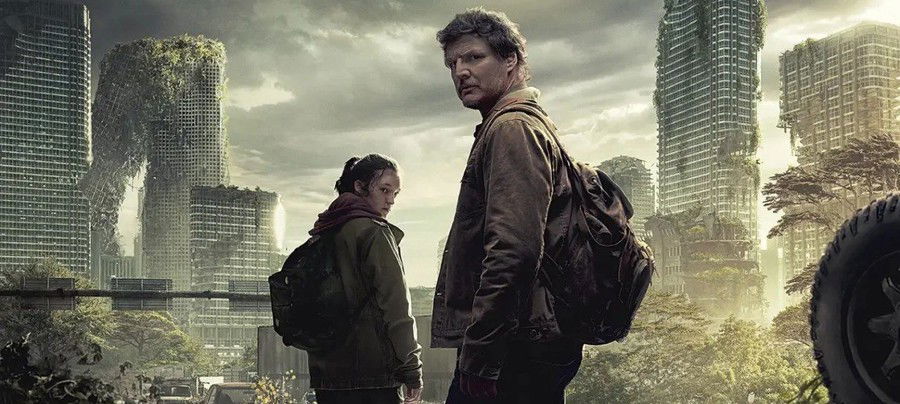
Adapting a work for another medium is a greater challenge than many make it out to be: the unfolding of events needs to be interesting to the consumer of that medium and keep them entertained while presenting a coherent story to that of the original content.
Videogames are a huge issue in this regard because turning them into a show or movies means removing the main element that makes them an attractive media source, player interaction. This (and some questionable script decisions) is why we see so many flawed adaptations, as was the case with Netflix's Resident Evil.
Despite the presentation of a story about humans and relationships, at the end of the day, The Last of Us is a game where you must survive and shoot zombies, which even creates a certain dissonance between the story that the first game tries to tell and the attitudes that the player is taking to progress.
But the world created by Neil Druckman is very solid and, unlike many other works with zombies, it presents a fiction based on topics and subjects of reality, the Cordyceps fungus itself exists in our world and affects insects, and that makes it your believable experience for the viewer. There are no superpowers, lab viruses or Nemesis hunting you around, there is a world of ordinary people devastated by natural cause, and we are following the search for a possible cure as we learn more about them and their stories.
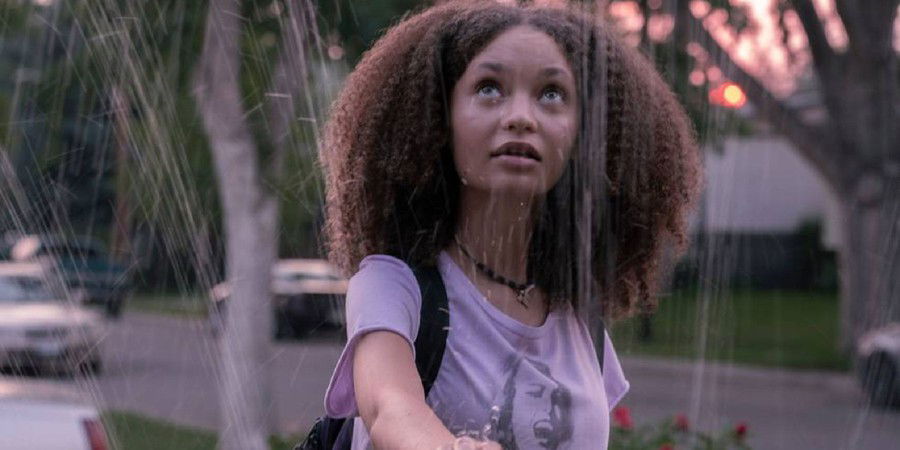
The TV adaptation allowed for greater prominence of Sarah during the outbreak sequence, which not only helps the viewer to have more understanding of why this figure is so central to the narrative of The Last of Us, but also creates the sense of urgency and, to some degree, panic as we watch the world as Sarah knows it slowly crumble as she goes through routine activities like going to school and visiting a neighbor. Her relationship with Joel also gained more evidence in the first few minutes of the episode, helping to add to the sense of importance of her existence for the protagonist, given that the role of "protector" or "father figure" is not as evident and connected to the player as it is in the game.
After the time skip, the world is no longer the same, and the first sign of this is the way in which FEDRA, which now separates the region into quarantine zones and controls them with the iron fist typical of a totalitarian regime, ties a child to a chair and performs the test which proves he to be an infected person. The agent tells the boy that he will be fine, he will receive medicine and new clothes - lies, his fate has been sealed and, when we see him again, his body is in a truck, ready to be unloaded and incinerated - a task that ends up falling in Joel's hands.
It's easy to assume that, 20 years after his daughter's death, Joel would have changed forever to the point where he falls into the stereotype of a cold-hearted man who doesn't mind doing the dirty work, but the scenes that follow that fateful moment, where the protagonist deals medicine with a guard and signs up to clean the sewers because they pay better for this service reveals that Joel is not only a man who closed himself off emotionally to survive the trauma of losing his daughter, he is also a person who understood and accepted this "new world" in which humanity is perpetually trapped, which innately means giving up a part of his own humanity.
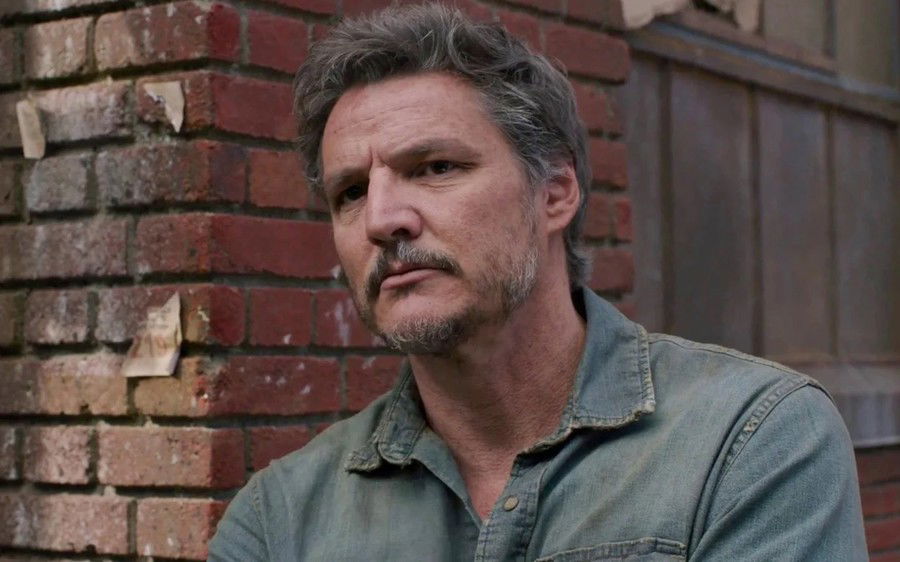
We are briefly introduced to Tess, but we are also introduced to Ellie, chained up and isolated. For those who have played the game, it tends to take a few minutes to accept Bella Ramsey in the role of Ellie because despite her 19 years, Bella appears to be younger than the protagonist in the game, but it just takes the character's first dialogue with one of the Fireflies to identify all of her traits in Bella's performance: hot-headed, foul-mouthed, emotionally aggressive, and talks as if she has more power than she actually does. Yes, this is definitely the Ellie we know, and Bella does an excellent job of representing her.
Despite being closed off about emotional connections, the episode also highlights moments where we see Joel still maintaining his bonds. First, with his daughter, given that he wears the watch given by her on his birthday, even long after it has broken. Second, with his brother Tommy, who has been missing for weeks, and last but not least, Tess.
The nature of the relationship between the two is uncertain, and it has never been and will never be made explicit how close they really are, but it is presumed that Joel trusts Tess enough to establish a mutually beneficial partnership.
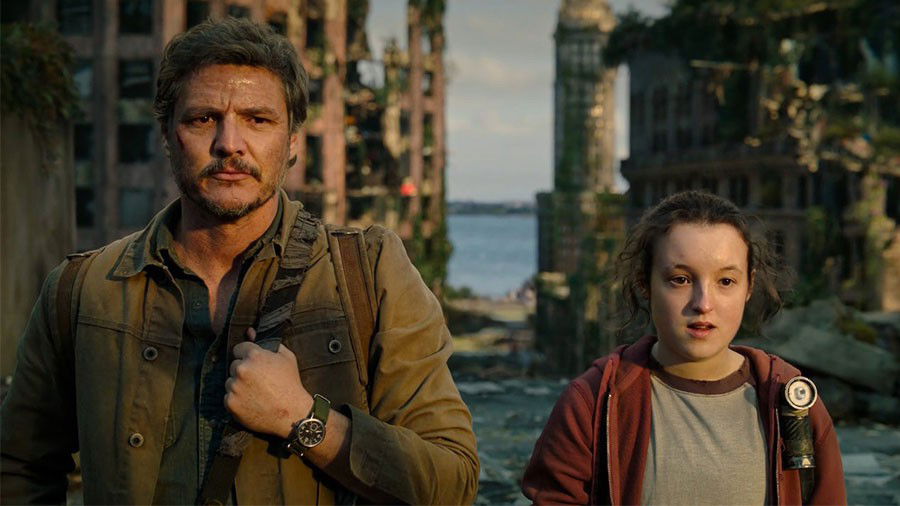
Another character we are introduced to is Marlene, and although she serves in this episode as the cog that makes the story run, her role in the unfolding of the plot will be essential for us to understand Ellie and the importance of "us" in The Last of Us.
And it's still in this first episode that we get the first interpretation of what "us" means, and, despite initial glimpses of what Joel's us means, the first to make her us clear at the end of the episode it is Tess, when after discovering that Ellie is infected, she decides to run away with the girl even when Joel is still dazed by the idea that there is an infected person whose fungus has not yet manifested itself.
However, the us is the main focus of the next episode.
Score: 5 / 5
Episode 2 - Infected
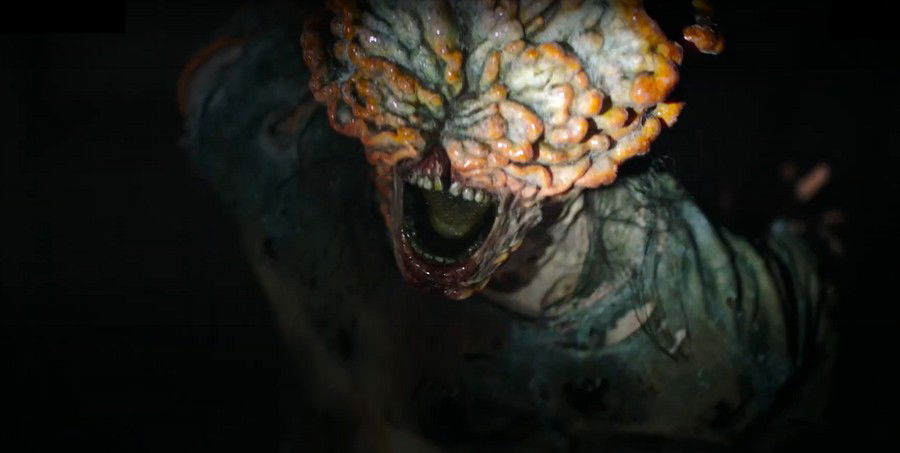
Few moments in recent video game history are as memorable to me as the subway station sequence in The Last of Us. It doesn't have any spectacular cutscenes, no intense moments and, really, it's just a level to be overcome, but there is an element in this part of the plot that has stuck in my head since my first contact with the game - that is the first moment in which you are presented with the hostility of the world in which Joel and Ellie live, and the culprits are the Clickers and the disturbing sound they emit.
The show does not do justice to this fateful moment in The Last of Us narrative, especially since such a psychological effect requires the player's immersion to work. Therefore, the bet of the narrative of the second episode is to put some brakes on the action to explore in depth the interaction between the characters we know so far, where Ellie stands out for the inherent curiosity of a teenager in a world which, despite her being aware of the dangers, has not yet turned absolutely gray as it is in the eyes of adults who lived through the twenty long years that followed the outbreak.
One of the highlights of the adaptation since its first episode is the deepening of the plot regarding the origin of the cordyceps outbreak. While the interview on the correlation of global warming with the evolution of the fungus brought a beautiful contrast with the world we saw gradually deteriorating in the previous episode, this time we had confirmation of the first case in Jakarta, where a researcher examines the corpse of an infected woman and, after confirming that it was a lethal fungus capable of controlling living beings, she recommends that the Indonesian army bomb their own country - a recommendation that is presumed not to have been followed or occurred too late.
The desolate and distressing atmosphere of this flashback is its memorable point, as it brings a reminiscence of other catastrophes such as the most advanced stages of the Covid-19 pandemic, or other major disasters in human history, such as the case of the Chernobyl power plant, also represented by an HBO TV series.

Back in the present, it becomes easy to consider that the second episode has a slower pace and does not correspond to the emotions we feel in the game. Infected stands out for its characters' interactions with each other and the exploration of the details of a nature that, little by little, takes back for itself the world that humanity has dominated for millennia. Obviously, this calm is broken with the first confrontation with the infected that we see in the plot, especially when Joel shoots one of them and yet the creature doesn't succumb or die.
But it's at the end that Infected stars us with a scene as terrifying as it is memorable. Tess is bitten by a Cracker, and within just a few minutes it becomes possible to see the obvious comparison between her mark and Ellie's - and if there was any doubt about the young woman's immunity to cordyceps, it is, unfortunately, through Tess they prove themselves.
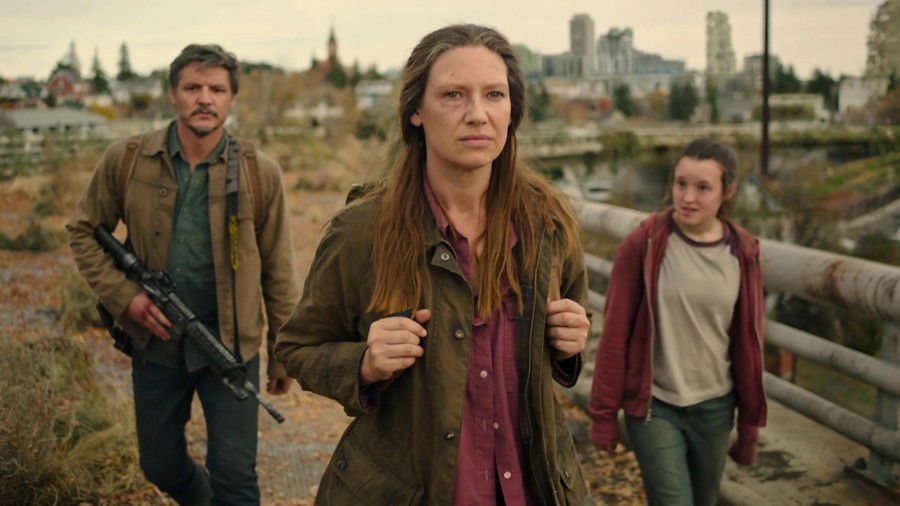
It is when the trio finds the Fireflies to whom they are supposed to deliver Ellie dead, and they accidentally awaken the infected around them who approach at relentless speed, that Tess demonstrates her conception of us to the viewer: hope.
For her, if Ellie is indeed immune and can perhaps help bring about a cure for Cordyceps, the journey is worth continuing. While Joel's skepticism keeps him from viewing Ellie with the same positivity as his now doomed companion, Tess' efforts to get them to escape ends up convincing him to leave her behind and respect his last wish to take Ellie - and with it, the cure - to the Fireflies.
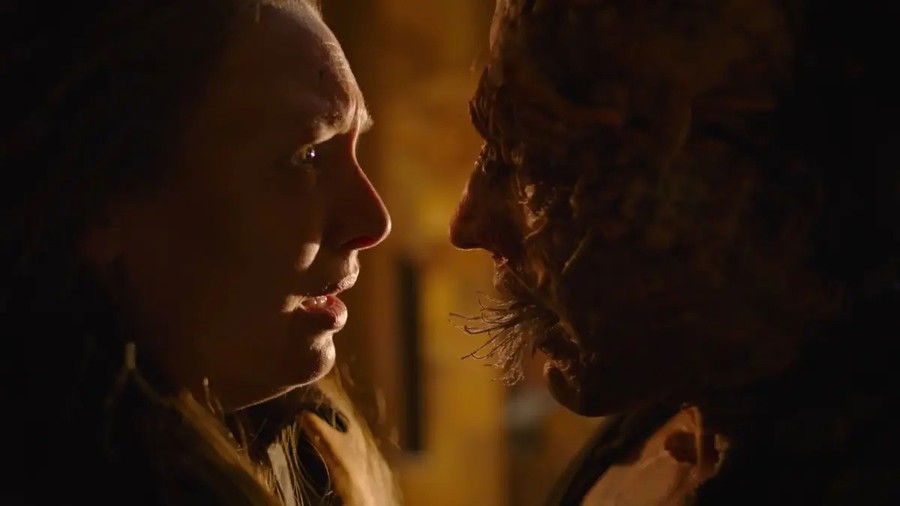
In Tess's last act, we understand that her perception of us is a collective, it is humanity that can be saved from the dark fate that she, unfortunately, could not be spared.
And just as, in the first minutes of both episodes so far, we observe that same humanity being invaded by a life form that manages to subdue it and deprive it of the act of thinking or feeling - two elements that define a large portion of inherent characteristics what it means to be human - we see an infected approach Tess and "kiss" her with the tendrils of the fungus invading her lips, as she desperately tries to keep her consciousness focused on the lighter in her hand to set the museum and all the infected inside it on fire. That may be the end for her, but there may be hope for humanity if that fire is lit.
And with a huge but melancholic explosion, the second episode of The Last of Us - and Tess's life - come to an end.
Score: 4 / 5
Episode 3 - Long Long Time
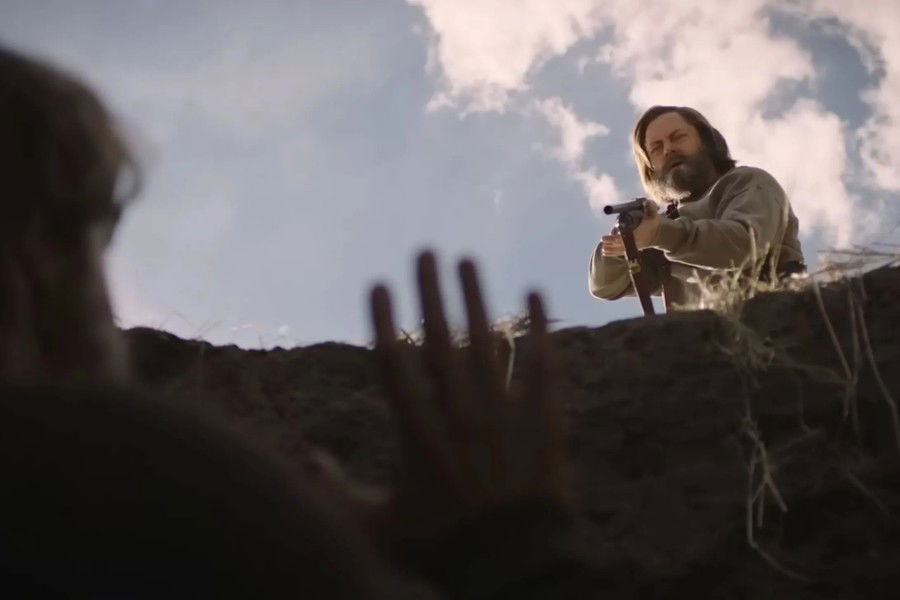
The third episode makes things more interesting by being the first in which the structure of the game's story is significantly changed. In it, after losing Tess, Joel and Ellie seek help from Bill, a survivalist who lives in a residential area isolated by traps created by him to ward off infected and uninvited guests. We have a moment where we see Joel block Ellie's empathy by refusing to talk about Tess, as well as confirming the theory that cordyceps was spread through the flour.
Then we are taken to Bill as the series leaves Joel and Ellie aside to present another story. But before we delve into it, we need to talk about Bill in the game.
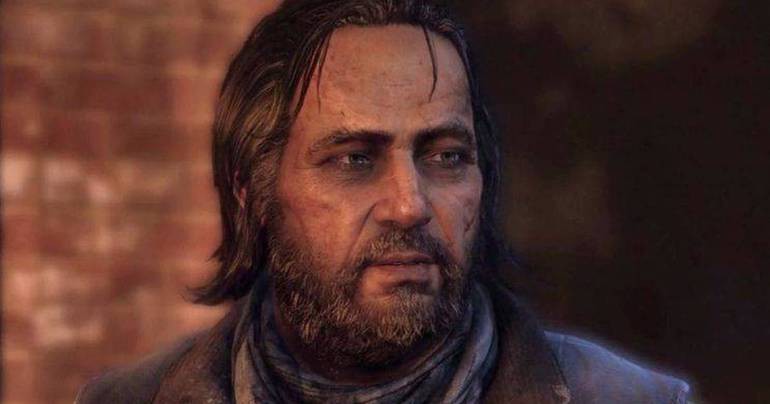
Despite being a game where you are killing people, zombies and harvesting resources to advance the story, the plot of The Last of Us is based on the interpersonal relationships between its characters and the interpretation of what "us" means to them, and although the main focus is on the characters controlled by the player, the secondary figures that appear before Joel and Ellie serve as a mirror or example of the conflicts between the protagonists.
Before they found Bill, Joel had just lost Tess, the only person he trusted in the quarantine zone, so it's safe to assume that one of the reasons he continues the job is because Tess asked him to, but as we've seen so much in the original work and in the adaptation of the series, this made him further isolate himself from Ellie and, in this sense, the survivalist would be the natural conclusion of what Joel is unconsciously proposing to himself at that moment.
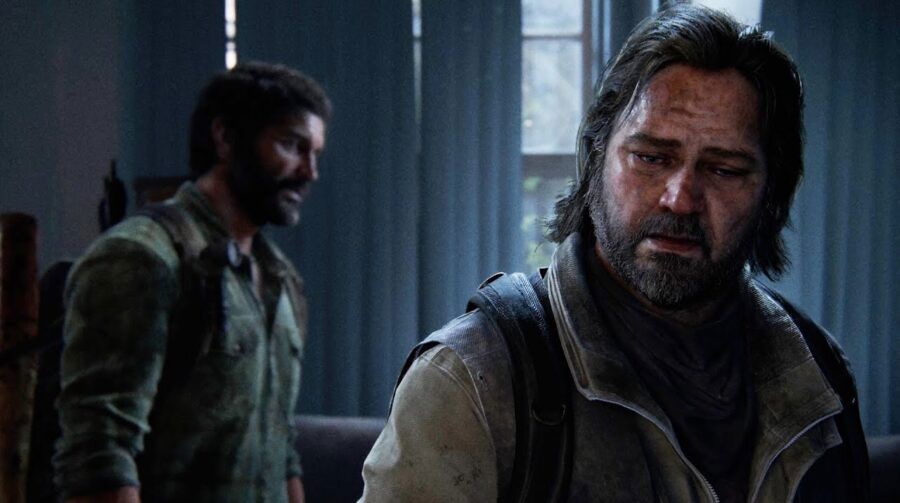
In the game, Bill is paranoid to the point of cutting off all possibilities for social interaction. His perception of "us" is "me because 'us' only serves to get ourselves killed", and he takes this to extreme levels that even affect his relationship to the point where they break up, which eventually leads to Frank being bitten and commit suicide, leaving a letter where he demonstrates his contempt and resentment of the man that Bill has become, and the death of his partner only served to strengthen his beliefs.
When we finish the sequence where he is present, Bill is still the same paranoid and misanthropic man, and now emotionally wounded, but his story indirectly serves as an example to Joel - and to the player - of the dangers of the path he was treading at that time.
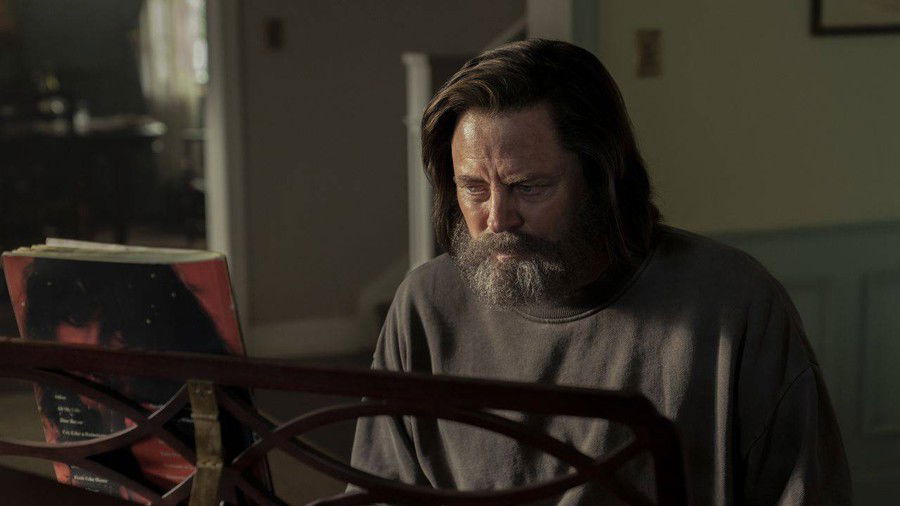
In that sense, Bill from the HBO adaptation is the complete antithesis of the character we see in the game. It's likely that people who played The Last of Us spent at least half of the third episode waiting for that breaking point that would lead to Frank walking away and eventually dying. In some moments, it even seemed that he was taking advantage of Bill's loneliness.
However, from the dinner scene with Joel and Tess, it was evident that this episode was more than just a real reproduction of the scenes as we know them in the game - it was an episode that operated by its own rules, taking the viewer to a universe of the harsh and almost nihilistic reality of the world devastated by Cordyceps as we saw in the previous episodes, almost as if the series tried to show us that, like the strawberries in the couple's garden, there was still some beauty and room for genuinely good things to flourish in a world filled with desolation.
By the end of the episode, we learn Bill's meaning of "us" - it's Frank. And for him, life was filled with a purpose as long as Frank was alongside him. That stranger who suddenly fell into one of his traps changed Bill's life forever, and we can daresay give him a meaning to actually exist out of his survivalist shell. And, when Frank takes the decision to no longer suffer from disease, Bill realizes he fulfilled his purpose as well, and decides to end his days alongside his husband. In the end, Bill's us was his lover.
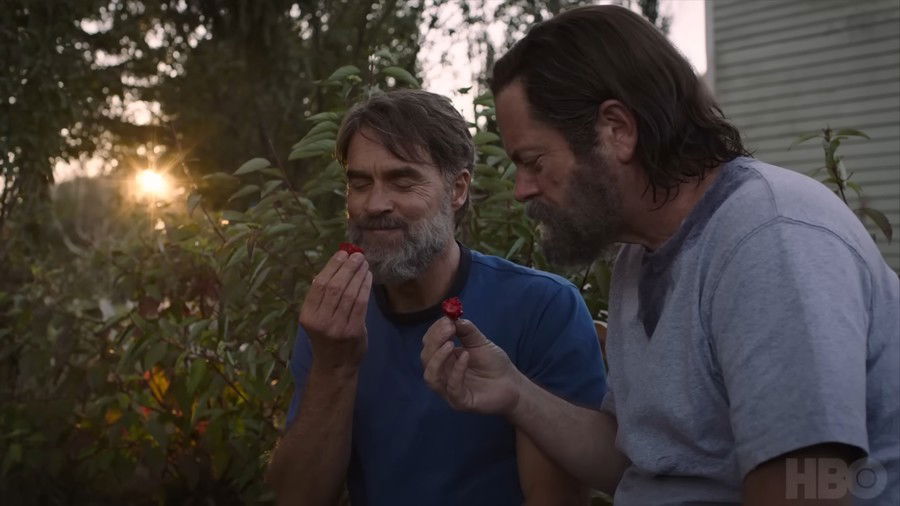
"Long Long Time" is a wonderful story about the birth of love in a world scarce of it. Unlike the Bill we knew, this character is someone who took the opposite path and allowed the man he met and fell in love with to change the rules of his life, meet other people and even identify and bond with another human being - Joel.
And this is perhaps the point that really raises questions about the development of the next episodes: while the original Bill was almost painful and irritating to deal with and warned Joel of the dangers of having to take care of another person, the Bill of the show leaves a letter in which he explains the value of living a life to care for and protect someone else, and even hints that Joel has that same responsibility for Tess, who just sacrificed herself so that he could deliver Ellie to the Fireflies.
The protagonist is notoriously moved by the letter, and if that was of any use to him, it was to further reinforce the idea of continuing with the work in memory of Tess's last wish.
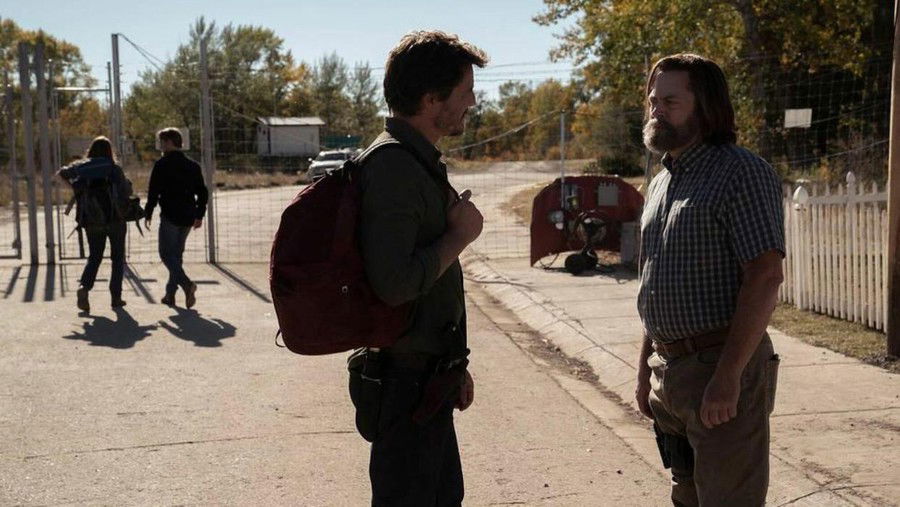
The Last of Us is a game with several intense and very dark situations, but it also brings, from time to time, a brief period where it tells you to relax a bit, reminding you that not everything in its universe is violent and threatening, and the third episode is precisely one of those moments for the viewer executed in the best possible way: making sure everyone remembers that, even in adverse conditions where humanity is less human, love can still flourish.
Score: 5 / 5
Conclusion
That's all for today.
The Last of Us has been an emotional rollercoaster worthy of the title of the work the series is based on, and few works manage to stand out as well as an adaptation. It has its own unique narrative elements inherent in cinema, while fully carrying the game's genesis in each of its episodes thus far.
Why am I writing about a TV show on CardsRealm?
Yes, it may seem strange to write about a TV show on a gaming and card game site. However, my conversation with the other editors led to the conclusion that, just like we did with Arcane when Netflix released the animation, The Last of Us is part of an existing category on the site which is games - where I also work with review for classic games and news of modern titles, especially the Final Fantasy franchise.
As a journalism student, I understand the importance of expanding my horizons and learning new methods and approaches to written and audiovisual content, and here I have the opportunity to test ideas, their receptivity and what I can improve from each project, in addition to collaborating with other ideas for the future of the site and other domains and/or expansions.
Finally, I am in love with The Last of Us. I've already lost count of how many times I've replayed the first title, and being able to address both the plot of the original work and the HBO adaptation is an excellent opportunity to bring content that can be mutually interesting to write and also to read.
The review of the next episodes will be done separately.
Thanks for reading!

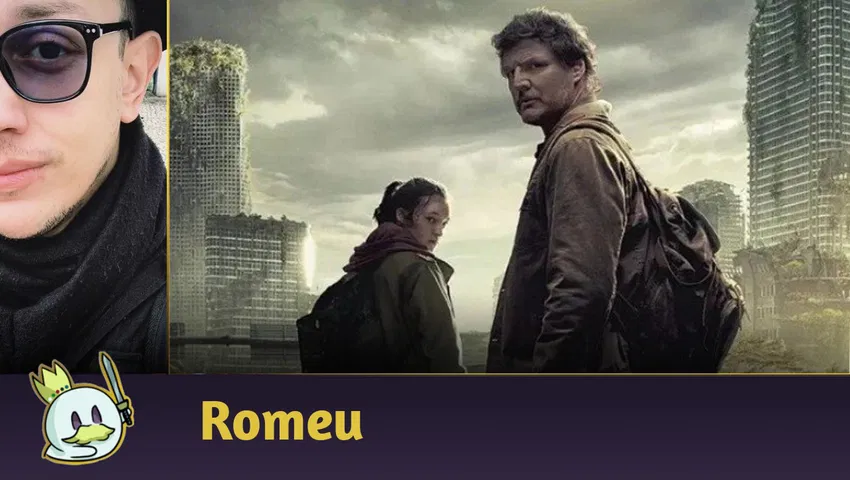






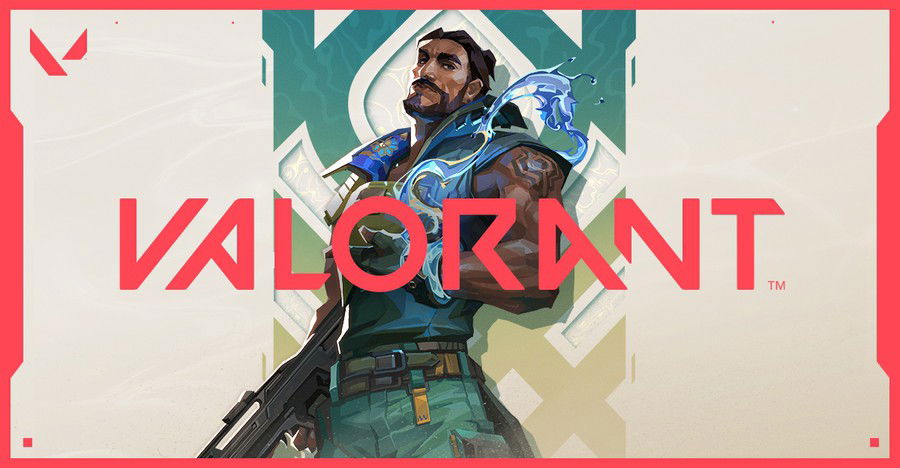
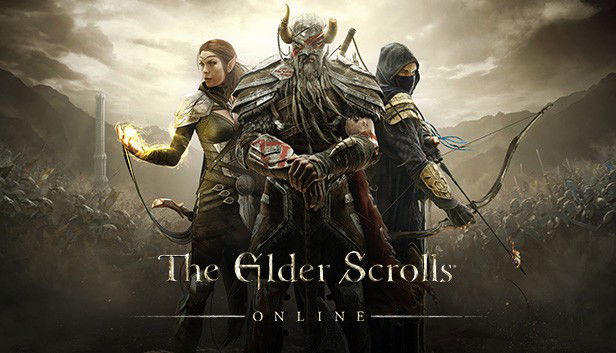



— 评论 0
, 反应 1
成为第一个发表评论的人